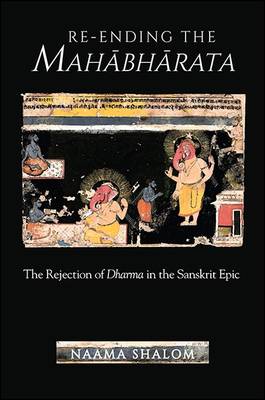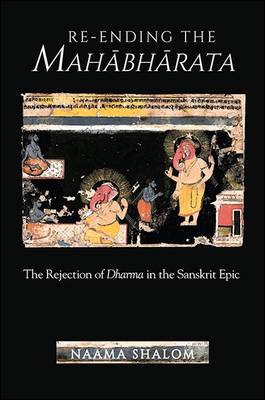
- Retrait gratuit dans votre magasin Club
- 7.000.000 titres dans notre catalogue
- Payer en toute sécurité
- Toujours un magasin près de chez vous
- Retrait gratuit dans votre magasin Club
- 7.000.000 titres dans notre catalogue
- Payer en toute sécurité
- Toujours un magasin près de chez vous
Description
Offers a fresh perspective on the Mahābhārata based on an exploration of its ending, the Svargārohaa parvan.
This book challenges two prevalent assumptions about the Mahābhārata: that its narrative is inherently incapable of achieving a conclusion and that its ending, the Svargārohaa parva, is an extraneous part of the text. While the exegetic traditions have largely tended to suppress, ignore, or overlook the importance of this final section, Shalom argues that the moment of the condemnation of dharma that occurs in the Svargārohaa parva, expressed by the epic protagonist, Yudhihira, against his father, Dharma, is of crucial importance. It sheds light on the incessant preoccupation and intrinsic dismay towards the concept of dharma (the cardinal theme around which the epic revolves) expressed by Mahābhārata narrators throughout the epic, and is thus highly significant for understanding the Mahābhārata narrative as a whole.
Spécifications
Parties prenantes
- Auteur(s) :
- Editeur:
Contenu
- Nombre de pages :
- 266
- Langue:
- Anglais
- Collection :
Caractéristiques
- EAN:
- 9781438465029
- Date de parution :
- 02-01-18
- Format:
- Livre broché
- Format numérique:
- Trade paperback (VS)
- Dimensions :
- 152 mm x 226 mm
- Poids :
- 453 g







